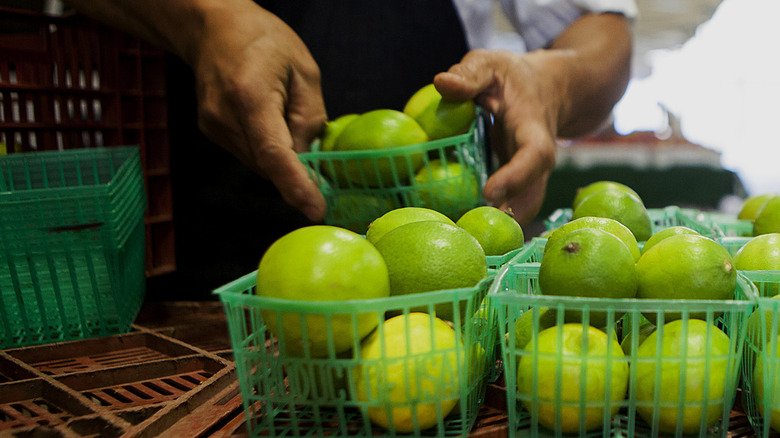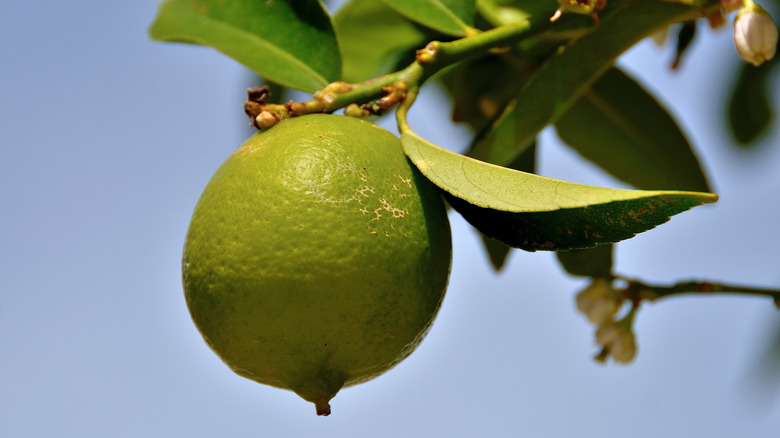The Real Reason Most Grocery Store Limes Don't Have Seeds
Lime cheesecake or lemon meringue pie? A slice of lemon or lime in your gin and tonic? Lemonade or limeade? The decision to use either lemon or lime is usually a matter of personal preference. Of the five basic tastes that humans can recognize — sweet, salty, umami, sour, and bitter — lemons and limes fall into the sour category. Both are zingy and tart, and their acidity brightens up any dish or drink.
In fact, a squeeze of juice from either fruit can change a food's flavor profile. Most recipes that include either lemon or lime allow for substituting one in place of the other. Despite their versatility, however, if either is a key ingredient in a recipe, switching can alter the final result, advises Nigella Lawson, English food writer and popular TV cook.
Spoon University explains that these differences in taste are caused by the chemical variations between lemons and limes. Limes generally have higher levels of acidity. Lemons have more sugar content than limes and are a touch sweeter, perfect for cakes and pastries, while limes are more acidic and have a stronger flavor, ideal for cocktails and drinks. And when it comes to the varieties you find at the grocery store, there's another key difference you may have noticed between these fruits.
Life gives us lemons; citron and lime give us seedless limes
If lemons and limes are so closely related and often interchangeable in cooking, why do lemons we buy in supermarkets have seeds while limes typically do not? This is because the limes generally found in grocery stores are a large-fruited variety commonly known as the Persian lime (via Los Angeles Times). This juicy hybrid fruit, alternatively called Tahiti or Bearss lime, has a thicker skin than other varieties and a longer shelf life, making it ideal fare in supermarkets.
These limes are seedless because the plant's flowers don't require pollination to make fruit; instead, the LA Times continues, they derive from the hybridization of citron and "true" limes. "Virtually all of the world's seed plants need to be pollinated," explains the U.S. Department of Agriculture. But if the flower doesn't need to be pollinated, then the fruit doesn't need seeds.
Seedless fruit varieties, known as parthenocarpic fruit, include bananas, watermelon, cucumbers, and grapes. The lack of seeds in grocery-store limes might extend their shelf life and make juicing them more convenient, but you probably won't notice any difference in flavor. And whether you prefer sweeter lemons with seeds or tangier limes without, both fruits promise to deliver maximum zing and piquantness to any food or drink. So pucker up and squeeze away.

